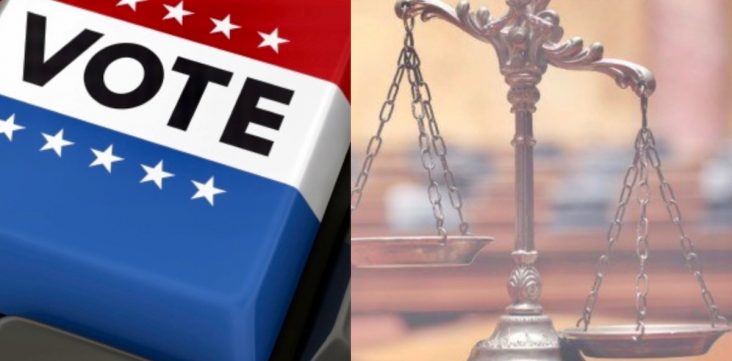Redistricting amendment organizers seek legal relief from signature gathering rules
by April 22, 2020 1:56 pm 786 views

Arkansas Voters First is asking the federal court for signature collection relief in its push to place an amendment on the November ballot establishing a non-partisan redistricting commission. The COVID-19 pandemic, claim the plaintiffs, makes it impossible to comply with existing rules.
The lawsuit was filed Wednesday (April 22) in the Fayetteville courthouse of the U.S. Federal Court Western District of Arkansas by Little Rock attorney David Couch.
Couch on March 5 filed with the Arkansas Secretary of State’s office the Arkansas Citizens’ Redistricting Commission Amendment that would create a nine-member commission to draw congressional and state legislative lines following each U.S. Census. If passed by voters in November, the commission would be composed of three members of the party with the most representatives in the General Assembly, three members of the party with the second most representatives, and three members of another party or no party.
Congressional lines are now drawn by legislators, and legislative lines are drawn by a Board of Apportionment composed of the governor, attorney general and secretary of state.
The group would need 89,151 valid voter signatures by July 3rd to qualify for the November ballot. Couch successfully led Arkansas initiatives to legalize marijuana for medical use and raise the minimum wage.
Arkansas Voters First (AVF) would have made “significant progress” in gathering signatures in March and April if not for societal restrictions imposed by the state in response to the pandemic, according to Wednesday’s filing.
“Close, in-person interactions are necessary to any effort to gather wet signatures for an amendment to be placed on the ballot. However, given the severe restrictions on the ability to physically interact with others, Plaintiffs cannot comply with Arkansas’s formal constitutional and statutory signature requirements. Given the current circumstances, Arkansas’s requirements unduly burden Plaintiffs’ fundamental First and Fourteenth Amendment rights under the U.S. Constitution,” noted the filing.
The filing also noted that AVF paid a canvassing group $210,076 to collect signatures, printed campaign materials, conducting public opinion polling and took other measures in the amendment effort.
“On March 5, 2020, AVF launched its petition drive and had canvassers in the field within a week. Shortly thereafter, and after collecting fewer than 100 signatures, AVF was forced to suspend its campaign due to the ongoing COVID-19 pandemic,” the filing noted.
Court-approved reductions in signatures and other ballot access requirements in Massachusetts, Michigan, Ohio, and Virginia were cited in the AVF filing.
Following are four of the several relief measures sought by AVF.
• Order the secretary of state from enforcing existing rules.
• Order that the secretary of state is required to accept a petition with the requisite number of electronic signatures.
• Order that, to appear on the Nov. 3, ballot, the petition for the proposed amendment must have been signed by 6% of the qualified electors of the state, based on the total number of votes cast statewide for governor in 2018, amounting to 53,492 signatures.
• Order that the deadline for plaintiff AVF to submit signatures be extended to Sept. 3, 2020.
• Order that the Secretary of State shall ascertain and declare the sufficiency or insufficiency of additional signatures within 14 days of the filing of supplemental petitions.
“We have a right to petition our government to amend our constitution. We don’t have the luxury of waiting until next year,” Bonnie Miller, director of Arkansas Voters First and president of the League of Women Voters of Washington County, said in a statement. “If we are denied access to the ballot this year, Arkansas could be stuck with unfair and unrepresentative districts for another ten years.”
